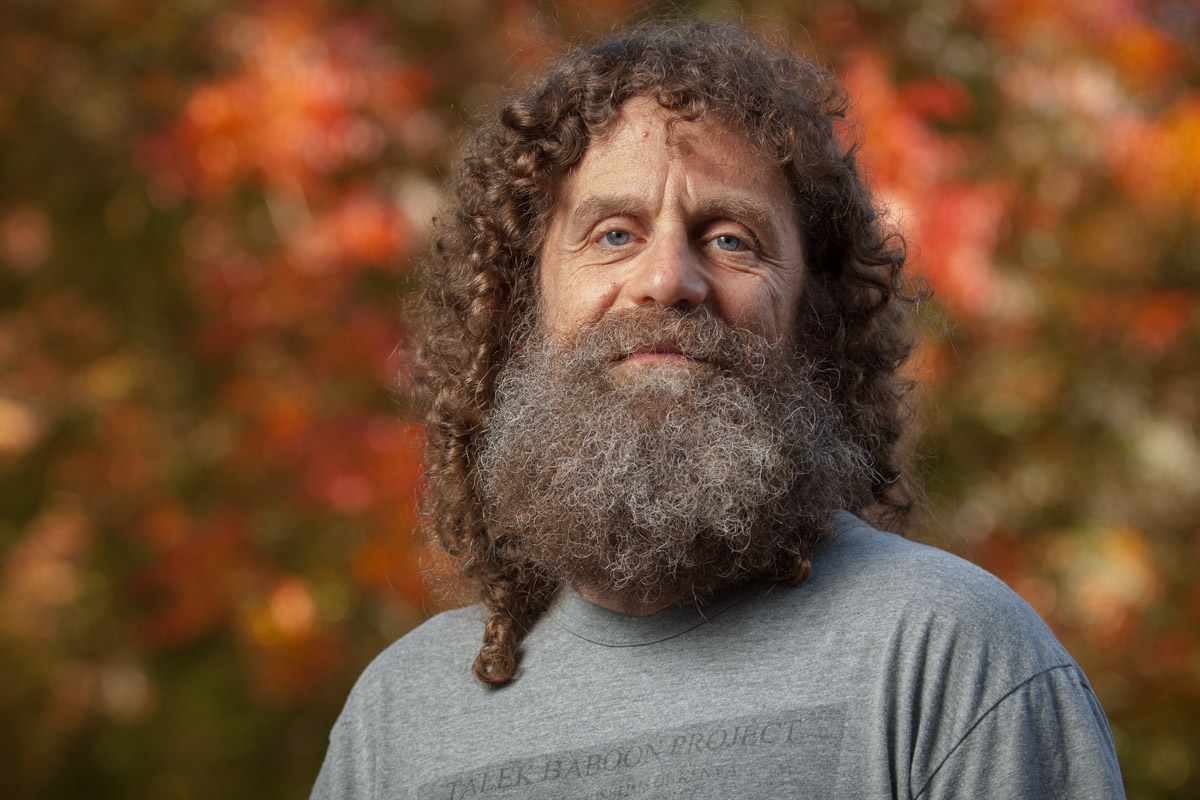Sapolsky is a name that resonates deeply within the realms of neuroscience and psychology. His work has transformed our understanding of stress, behavior, and the intricate dance between biology and environment. As a prominent neurobiologist, author, and lecturer, Sapolsky’s insights extend beyond the confines of academia, touching on issues that affect everyday lives and societal structures. His ability to weave complex scientific concepts into accessible narratives has made him a favorite among both scholars and laypeople alike.
Born in 1951 in Brooklyn, New York, Sapolsky's journey into the world of science was fueled by an early fascination with animals and their behaviors. This passion led him to dedicate years to studying wild baboons in East Africa, where he observed the impact of social hierarchies on stress levels. His research not only provided groundbreaking discoveries about the physiological effects of stress but also highlighted the profound influence of social dynamics on mental health.
In numerous books, lectures, and interviews, Sapolsky challenges conventional notions of free will, responsibility, and morality, urging us to consider the interplay of genetics, environment, and social factors in shaping human behavior. His work is not merely academic; it serves as a call to action, encouraging a more compassionate approach to understanding the challenges individuals face in our complex world.
What is Sapolsky's Biography?
Robert M. Sapolsky is a renowned biologist and neuroscientist whose research has had a significant impact on the fields of stress biology and neuroanatomy. His academic journey has been as diverse as his research interests, blending elements of biology, psychology, and anthropology.
| Personal Details | Biography |
|---|---|
| Name | Robert M. Sapolsky |
| Born | April 6, 1951 |
| Place of Birth | Brooklyn, New York, USA |
| Nationality | American |
| Education | Ph.D. in Neurobiology from Stanford University |
| Occupation | Neuroscientist, Author, and Professor |
| Notable Works | "Why Zebras Don't Get Ulcers", "Behave: The Biology of Humans at Our Best and Worst" |
What Are the Key Themes in Sapolsky's Work?
Sapolsky's research spans a range of topics, but several key themes emerge consistently throughout his work:
- Stress and Its Effects: Sapolsky's most notable work focuses on the physiological and psychological impacts of stress, particularly chronic stress.
- Neurobiology of Behavior: His exploration into how brain function influences behavior has reshaped our understanding of decision-making and morality.
- Social Hierarchies: Sapolsky’s studies of baboon troops reveal the critical role of social structures in determining stress levels and health.
- Compassion and Understanding: He advocates for a compassionate perspective on behavioral issues, emphasizing the importance of context in understanding human and animal behavior.
How Has Sapolsky Influenced Public Perception of Stress?
Through his engaging writing and public speaking, Sapolsky has brought the concept of stress into mainstream discourse. His book, "Why Zebras Don't Get Ulcers," explains the physiological mechanisms of stress and how chronic stress can lead to various health issues. By using relatable examples and humor, he demystifies complex scientific principles and encourages readers to reflect on their own experiences with stress.
What Is the Importance of Sapolsky's Research on Stress?
Sapolsky's research has profound implications for both individual health and societal well-being. Understanding the biological and environmental factors that contribute to stress can help develop more effective interventions for mental health issues. His work emphasizes the need for a holistic approach to health, one that considers both physical and psychological factors.
How Do Sapolsky’s Insights Apply to Everyday Life?
Many of Sapolsky's findings can be applied to daily life, providing practical strategies for managing stress:
- Awareness of Stressors: Identifying and understanding personal stressors is the first step in managing stress effectively.
- Social Connections: Building and maintaining strong social ties can buffer against stress and improve mental health.
- Mindfulness Practices: Engaging in mindfulness, meditation, or relaxation techniques can help mitigate the effects of stress.
- Seeking Help: Recognizing when to seek professional help is crucial in managing chronic stress and its effects.
What Future Directions Might Sapolsky's Research Take?
As science continues to evolve, so too will Sapolsky’s research. Emerging fields such as epigenetics and neuroscience are paving the way for deeper insights into how stress affects gene expression and long-term health. Furthermore, as society becomes increasingly aware of mental health issues, Sapolsky’s advocacy for a compassionate understanding of behavior will likely remain at the forefront of psychological and biological research.
Conclusion: Why Should We Care About Sapolsky’s Work?
Robert Sapolsky's contributions to science extend far beyond his research on stress; they challenge us to rethink our understanding of human behavior and the factors that influence it. By emphasizing the importance of empathy, social context, and biological influences, Sapolsky encourages a more nuanced view of ourselves and others. In a world where stress and mental health concerns are increasingly prevalent, his work serves as a vital reminder of the complexity of human nature and the power of understanding and compassion.
Unlocking The World Of Entertainment: A Deep Dive Into Www.goojara.to
Is Darnell Williams Married? Unveiling The Personal Life Of The Talented Actor
Famke Janssen: A Glimpse Into Her Early Years


